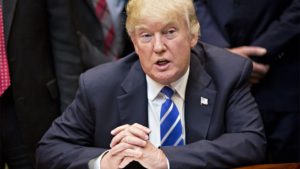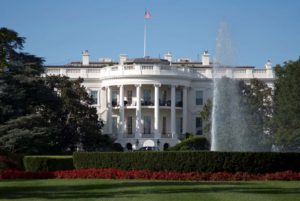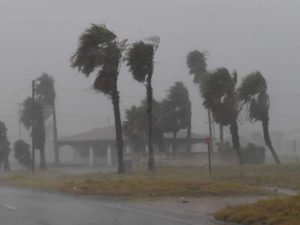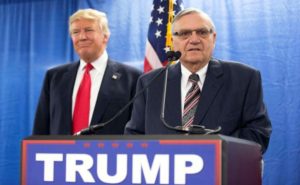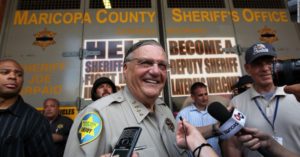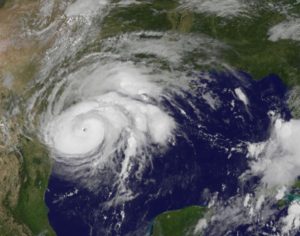Donald John Trump Sr.’s pardon of former “Sheriff Joe” Arpaio is likely to haunt the president well beyond the foreseeable future.
Trump this week pardoned the bad-ass former Maricopa County (Ariz.) sheriff who had been convicted of contempt of court; Arpaio refused to obey a federal court order to cease rounding up people he suspected of being illegal immigrants.
Arpaio disobeyed a lawful federal order, from a duly sworn federal judge. For that, the president pardoned him. His pardon speaks to Trump’s penchant for appealing to the nation’s divisiveness.
I doubt seriously that this president is going to be honored — ever! — for this callous decision.
With that … I want to look back briefly at another presidential pardon that at the time drew enormous political push back. In the four-plus decades since, though, it has been seen as a courageous act by a president seeking to bind the wounds of a nation.
President Richard Nixon resigned his office on Aug. 9, 1974. His successor, Gerald Ford, took the oath and declared that “our long national nightmare is over.”
President Ford wasn’t quite right. A month later, the new president issued the pardon that most assuredly cost him election as president in 1976.
Many years passed and President Ford’s stature grew slowly over time. Americans who were critical of the decision to pardon President Nixon began to think differently about it. I was among those who went through a change of heart.
In 2001, the John F. Kennedy Library did something quite extraordinary. It gave President Ford its annual Profile in Courage Award, honoring the president for the courage he showed in issuing the pardon, knowing the consequences it would have, but looking out only for the national good.
As the New York Times reported at the time: “Senator Edward M. Kennedy of Massachusetts told the audience at the John F. Kennedy Library: ‘I was one of those who spoke out against his action then. But time has a way of clarifying past events, and now we see that President Ford was right. His courage and dedication to our country made it possible for us to begin the process of healing and put the tragedy of Watergate behind us.”’
And this, also from the Times: “Mr. Ford said: ‘President Kennedy understood that courage is not something to be gauged in a poll or located in a focus group. No adviser can spin it. No historian can backdate it. For, in the age-old contest between popularity and principle, only those willing to lose for their convictions are deserving of posterity’s approval.”’
Time has allowed us to re-examine why President Ford acted as he did. Time also might provide us the same opportunity to take a fresh look at what Donald Trump has just done.
Then again, I doubt it. Seriously.


